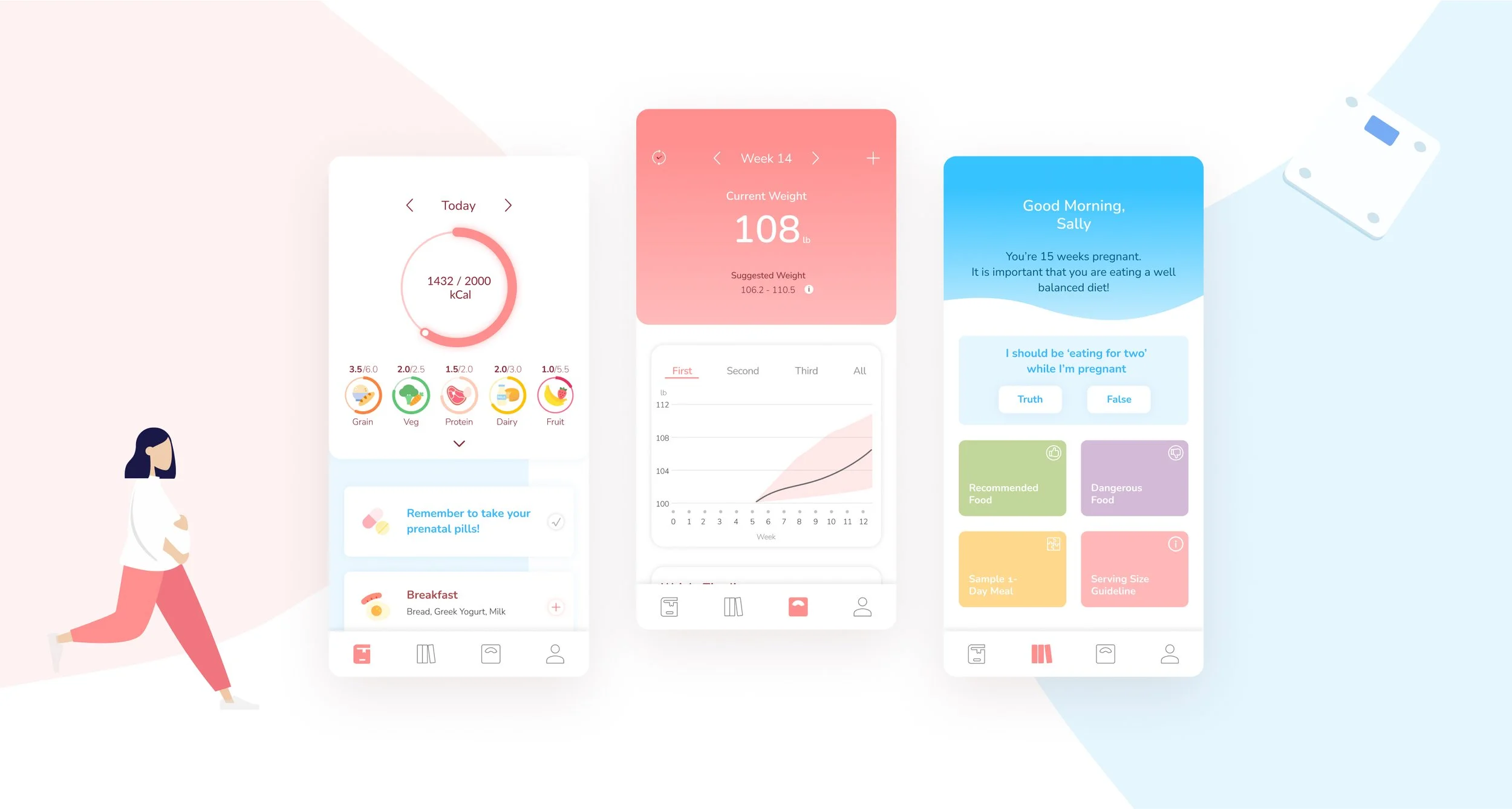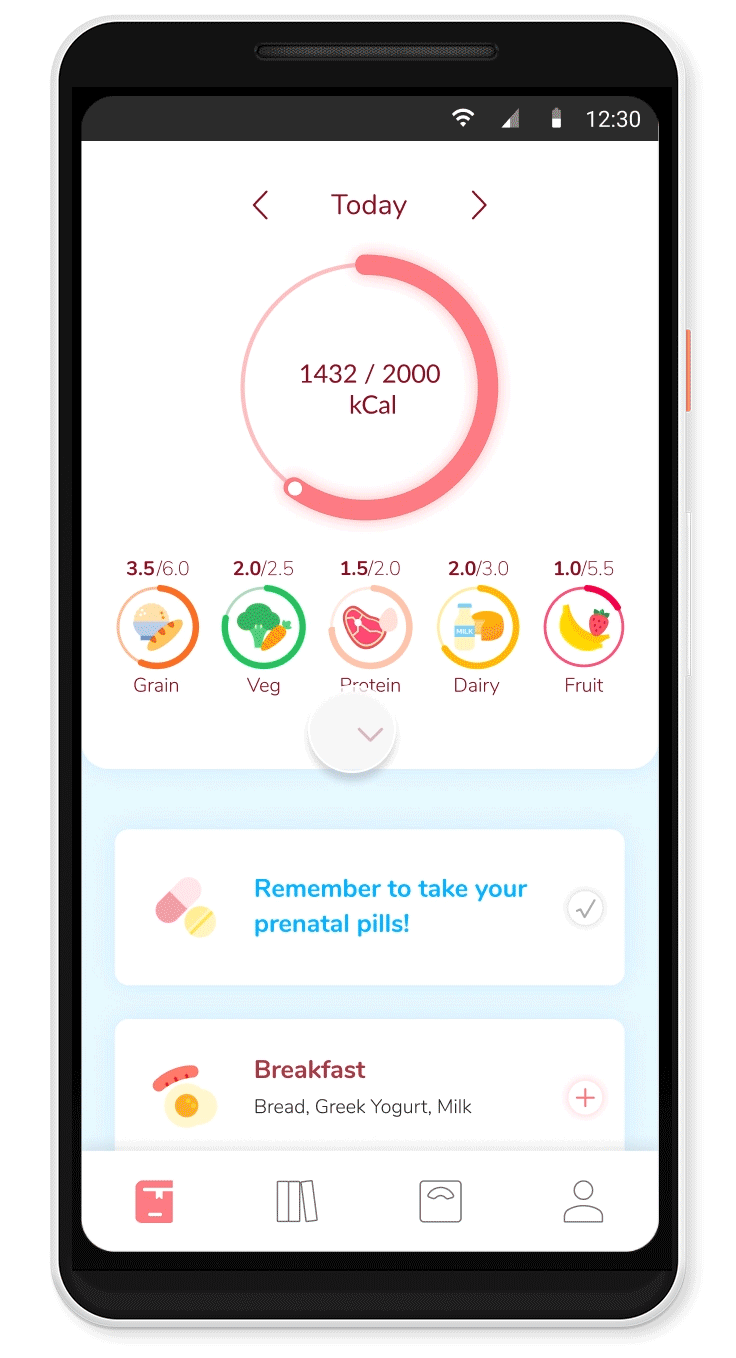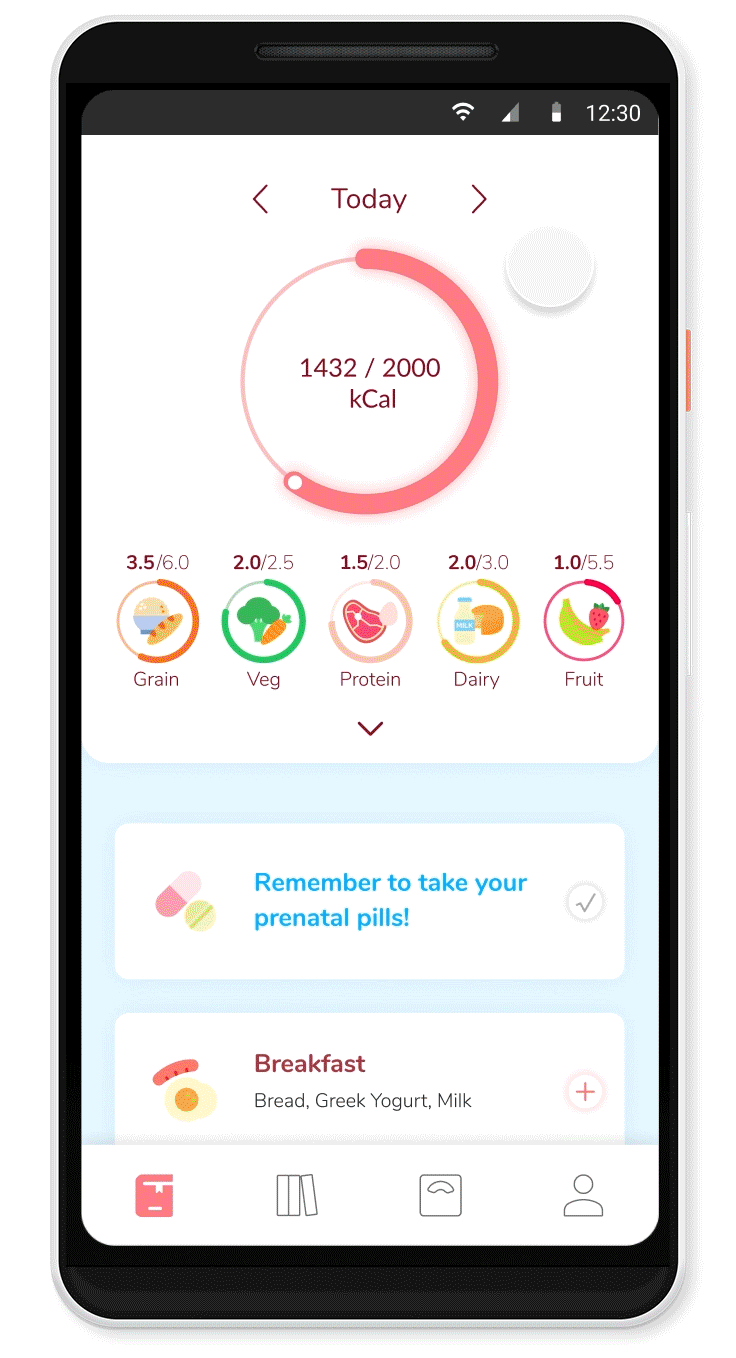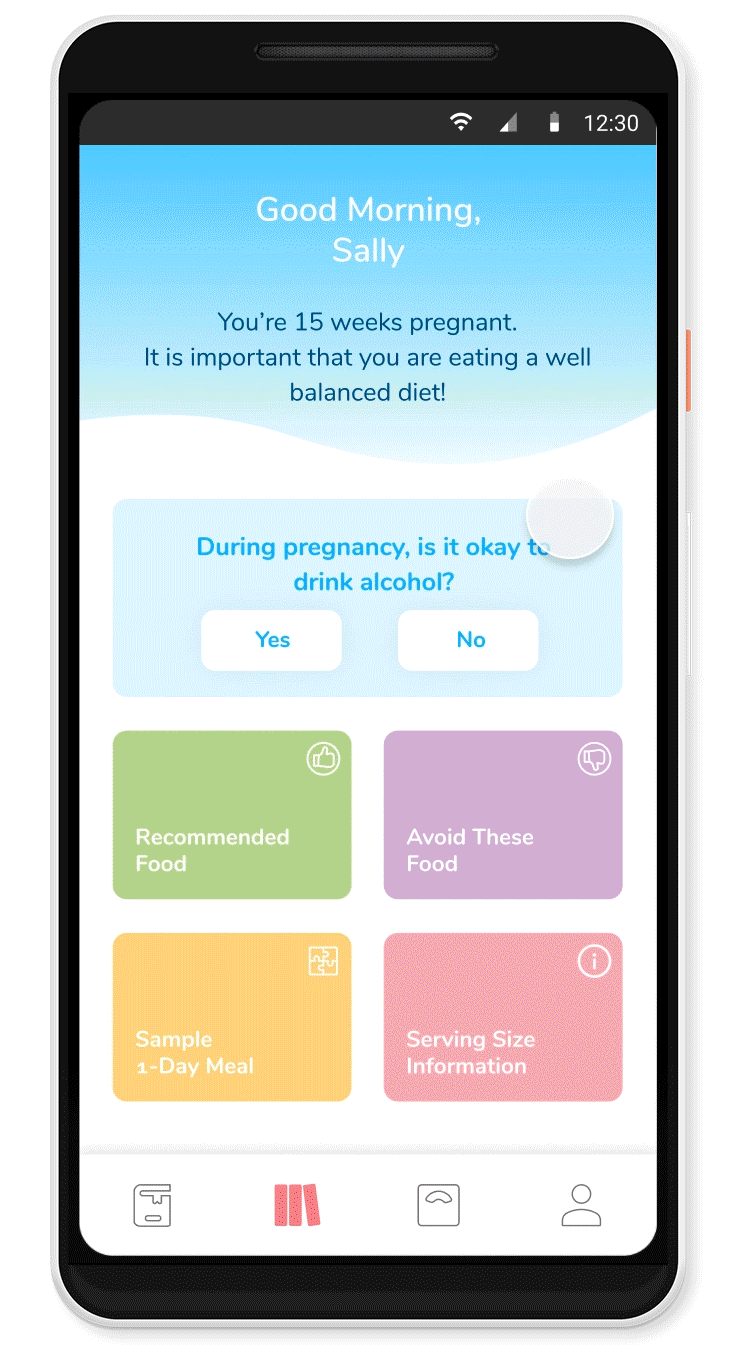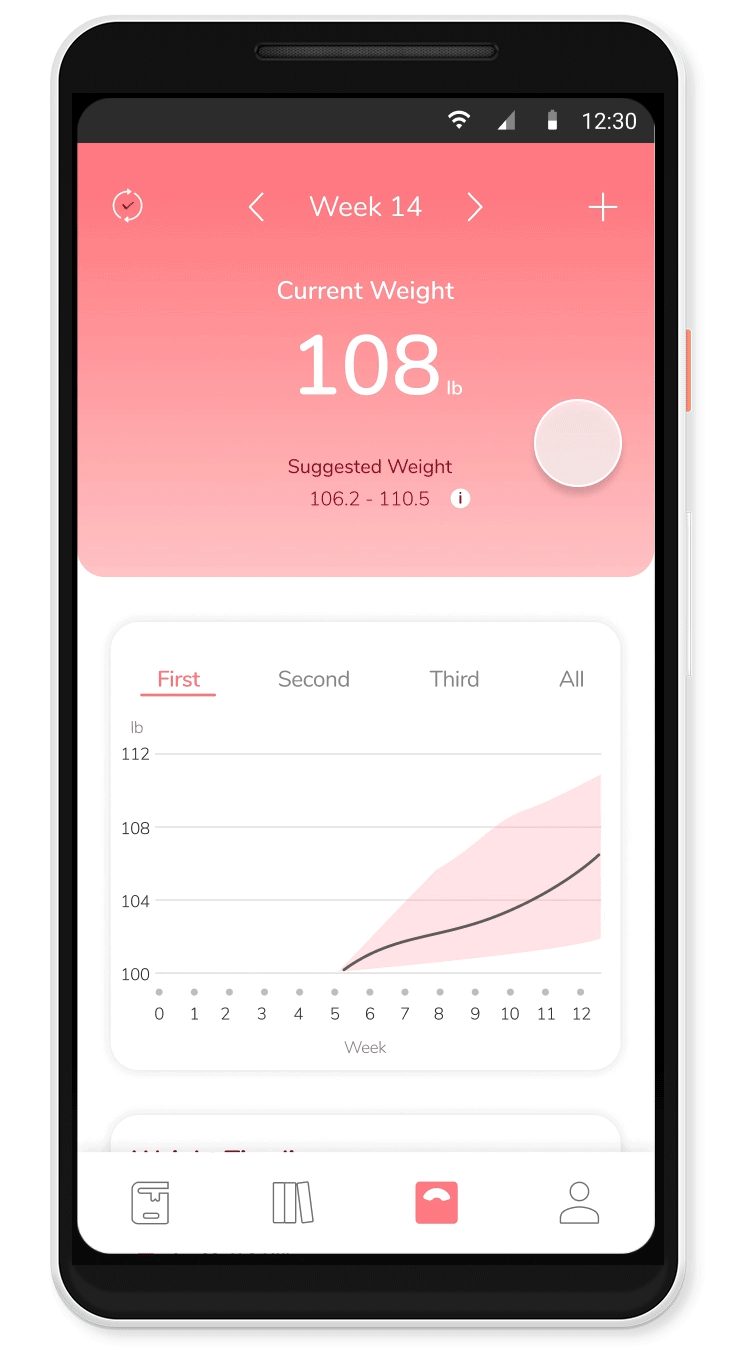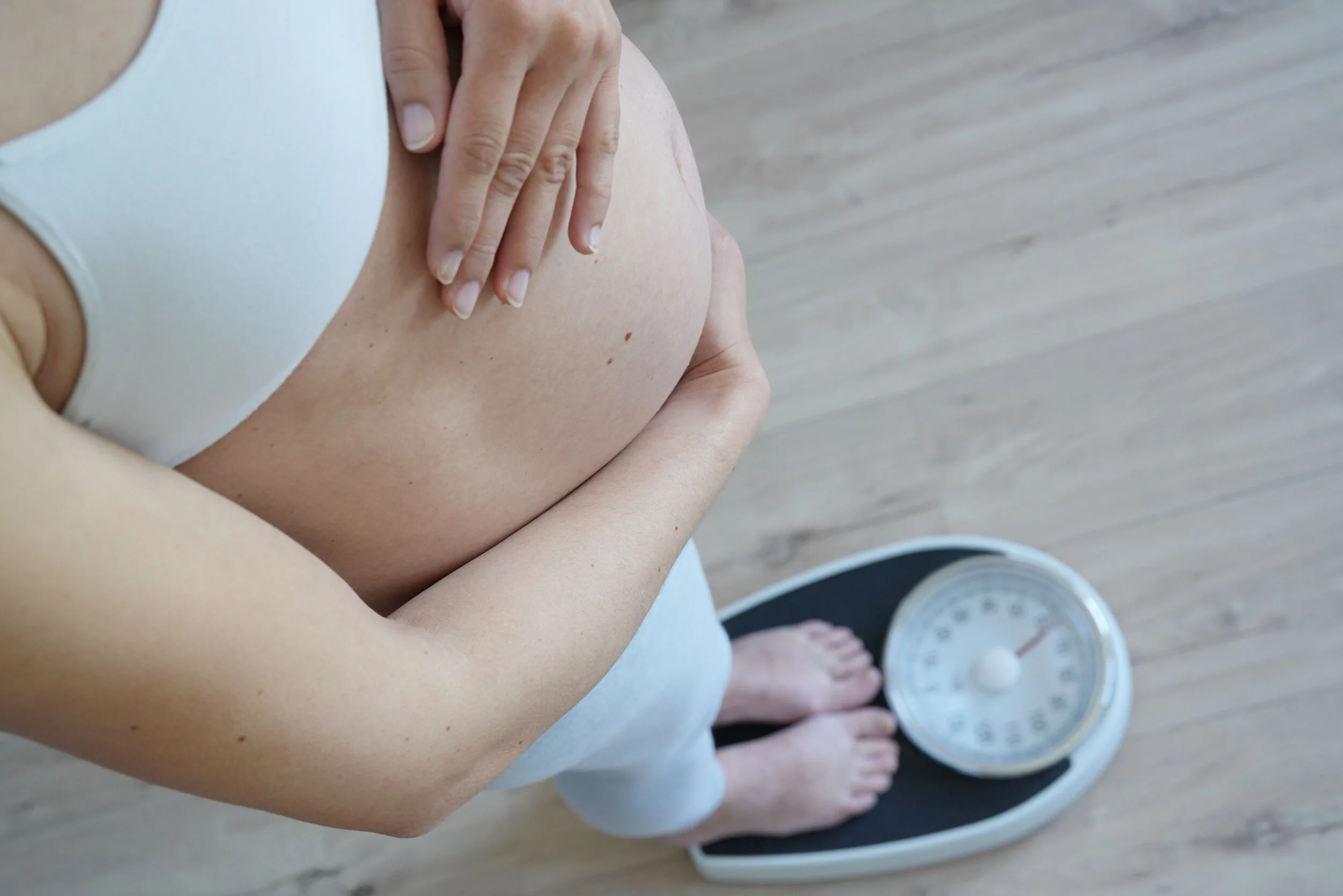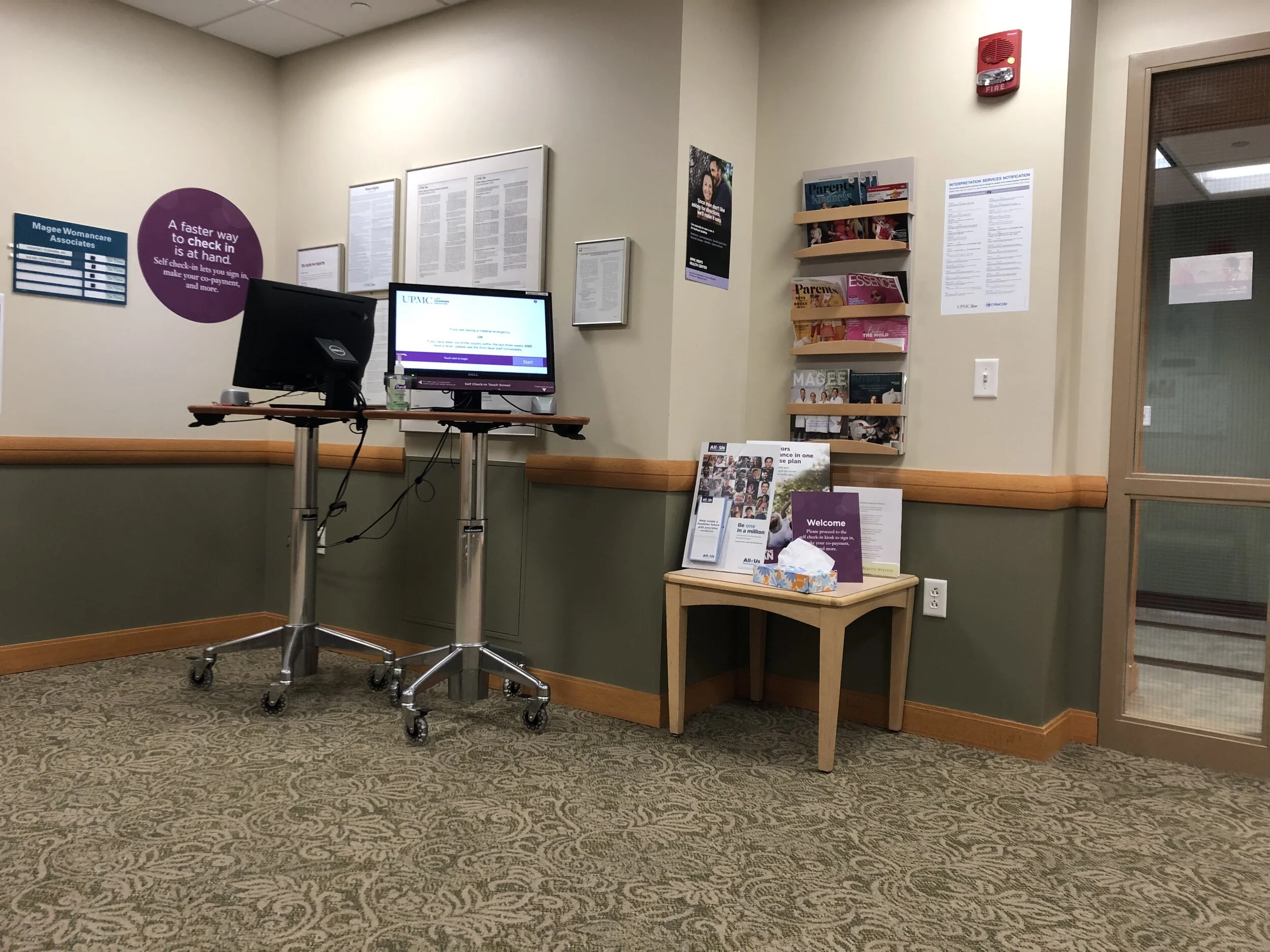Glow & Grow
Empowering healthy eating with gentle guidance for every trimester
Overview
As part of the Mobile and IoT course at Carnegie Mellon, I collaborated with a cross-functional team of two CS students and two MBA students to identify a real-world problem and design a solution from the ground up.
We developed a mobile app that helps pregnant women adopt healthy eating habits and track weight gain. Our project won 1st place in the Carnegie Mellon Mobile & IoT Startup Competition.
My Role
Product Designer
UX Researcher
Duration
Feb. 2020 - Apr. 2020
(10 Weeks)
Problem
Pregnant women often have a hard time maintaining a healthy diet and proper weight gain throughout their trimesters, especially for first-time moms.
During pregnancy, women are overloaded with suggestions from doctors, family, and the internet. Still, they lack the tools to help them form healthy habits and remind them of the importance of proper nutrition.
Solution
Glow & Grow is a diet & weight tracking tool that helps pregnant mothers form healthier eating habits by learning what is best for them and their babies.
My Process
01. Exploratory Phase
During the first phase of our project, I led research efforts utilizing secondary research, exploratory survey, and competitive analysis to better understand the problem space.
Secondary Research
Our goal in this phase was to identify common concerns pregnant women experience during pregnancy. One of which we found was related to pregnancy weight control.
Only a third of women hit weight gain target range during pregnancy
Research found on Journal of the American Medical Association
Inadequate weight gain can lead to various types of severe complications for mothers and babies. They range from infant growth retardation to maternal hypertensive disorder.
Exploratory Research
After secondary research, I conducted an exploratory survey to gain insights into how pregnant women currently track their nutrient intake and monitor weight gain. Based on 54 research participants ranging from age 18 to 40, we learned that,
Takeaway
Although most pregnant moms care deeply about their diet, they lack the means to keep track of their nutrient intake and weight gain.
Currently, they still rely on archaic methods to document their weight gain and food intake, such as writing down on their notepad or recalling with their memory.
02. Define Phase
After narrowing our problem space, I conducted interviews with mothers who recently had a baby and accompanied one of them to her prenatal visits. In this phase, we gained a clearer picture of the frustration that women experienced throughout their pregnancy.
Semi-Structured Interview
During our semi-structured interviews, I found that pregnant moms often receive overwhelming tips and suggestions from families and friends. Some of this information can be hard to digest and, at worst, contradicting.
Some expectant mothers still have misconceptions about pregnancy several months in,
even though they do receive prenatal booklets and guidance from doctors.
Prenatal Visit Shadowing.
I also shadowed a friend who was approximately three months pregnant for her routine prenatal visit. Disguised as her sister, I found a valuable insight: I learned that it is difficult for first-time mothers to keep track of physician recommendations because they are often delivered quickly and contain jargon.
Need Identification
Based on the two phases of research, I identified four major user needs for pregnant moms who want more education and guidance on their diet.
03. Develop Phase
Over an ideation session, we finalized the main functionalities of our application. Using paper prototypes, I conducted need validating activity to ensure the features we identified will deliver value. Last but not least, we also did formative research by iterating and locating areas of improvement.
Low Fidelity Wireframe Testing
The paper prototype was initially created as a boundary object to facilitate team discussion on application functionalities. However, after agreeing on our design, I also generated an updated low-fi wireframe for our think-aloud sessions.
Mid-Fidelity Wireframe Testing
After gaining some feedback, I performed several iterations of moderated usability tests to see if the design's flow aligns with the user's mental model. These tests also helped me locate areas of improvements.
Based on user feedback from the formative evaluations, we made some significant changes to the design. For example, highlighting the essential food groups over the macros in the diary page, including a section that helps mothers estimate food's serving size and introducing a delightful education piece in the app. Several other UI designs were also modified to convey more clarity. These design changes give pregnant moms more actionable suggestions without feeling burdened by it.
04. Refine Phase
After finalizing the hi-fidelity wireframes, I performed unmoderated tests on usertesting.com to obtain feedback on whether people would be willing to purchase this app and learn about their like/dislike about it.
Hi-Fi Wireframe & Unmoderated Usability Tests
This overall color scheme was selected to be calming and soothing for a pregnant mom to use daily.
Final Design & Implementation
In addition to creating a mockup, I worked closely with our developers to create an MVP to deploy to the Android app store. We were able to replicate this design with a few minor modifications.
Outcome & Reflection
At the end of our course, we presented our prototype to academic and industry experts at the startup projects fair, and were thrilled to win 1st place out of 12 teams!
While the recognition was exciting, our unmoderated user tests offered valuable insights. Users praised the app’s ease of navigation and task completion, but many wished for a more robust educational component. Given more time, my top priority would be expanding the app’s functionality beyond nutrition to include fitness guidance and sleep quality support.

